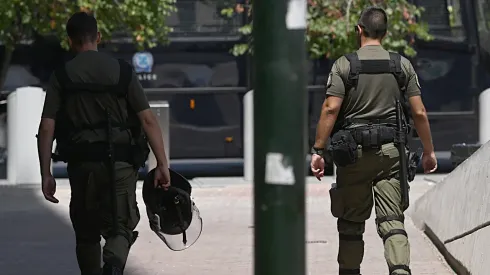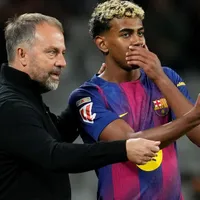UEFA suspended a Champions League qualifier between AEK Athens and Dinamo Zagreb after fan violence between the clubs. One Greek supporter died and several others sustained injuries in the brawls.
The clashes erupted on Monday night outside AEK Athens’ stadium in the Nea Philadelphia district of the Greek capital. According to reports, a group of around 100 Dinamo Zagreb “ultra” fans known as Bad Blue Boys (BBB) had traveled to Athens despite a UEFA ban on away supporters for the match. Panathinaikos ultras joined the BBB as they clashed with AEK supporters. Fans threw flares, explosives and stones during the incident.
One person dies, authorities arrest 88
A 29-year-old Greek man was stabbed multiple times during the fighting. Emergency workers rushed him to the hospital, but he later died because of his wounds. At least five other fans went to the hospital with injuries. Greek police said the brawl led to a total of eight injuries. Authorities arrested 88 people following the clashes, most of them Croatian nationals. Dinamo Zagreb condemned the violence in a statement, saying “Such events are not in line with the values and ethics that we promote as a club.”
Fan violence postpones Champions League game in latest incident
In the wake of the deadly violence, UEFA postponed the match on Tuesday. Even though Athens was the host for this game, Zagreb will host this first leg instead. Then, the second leg is in Athens. Many fans anticipated this match among others in the penultimate round of Champions League qualifying. The winner of this tie would then take on Antwerp for a spot in the Champions League group stage this season.
However, the tragic death of a young supporter has now overshadowed the sporting occasion. For now, the focus is on preventing further violence as the teams prepare to meet on the field in the coming week.
Fan violence has long been an issue plaguing both Croatian and Greek football. Last year, the Greek government increased maximum sentences for football-related violence from six months to five years after another fatal stabbing. However, hooliganism remains a persistent problem, often tied to historic animosities between clubs.
PHOTO: IMAGO / Pixsell















